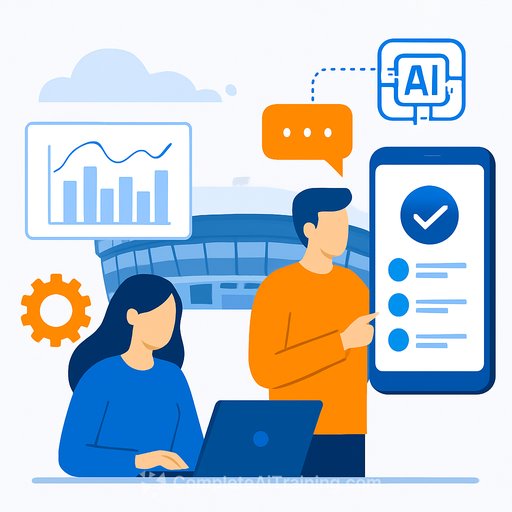AI Is Rewriting Luxury Hospitality: Insights From the TOURISE Summit
At the inaugural TOURISE Summit in Riyadh, a new industry white paper on AI and luxury hospitality set a clear direction for senior leaders. The research, produced by The Future Laboratory in partnership with Together Group, outlines how AI can reinforce human-first service, deepen personalization, and open new value opportunities across brands and properties.
"Guests expect seamless experiences, authentic recognition, and confidence in every interaction," said His Excellency Ahmed Al-Khateeb, Minister of Tourism and Chairman of TOURISE. "AI is not an optional upgrade; it is a critical part of our sector's future advantage. This white paper provides a practical roadmap for brands to use AI in a way that empowers staff, protects privacy, and keeps service distinctly human."
Christopher Sanderson, co-founder of The Future Laboratory, put it plainly: "Luxury is moving from ownership to engagement, from transaction to relationship. AI, when rooted in brand values and deployed with care, can enable anticipatory, emotionally intelligent service and make every guest feel known and valued, wherever they are in the world."
What the research says
The study surveyed high-value hotel guests in the UK and US and found a clear preference: 63% believe service must stay "human-first." AI is welcomed when it frees staff from repetitive tasks and supports more face time with guests. The message for GMs and operations leaders is simple-use automation to clear the runway for meaningful interactions.
Four innovation frontiers for luxury hospitality
- Curated Discovery: Intelligent, brand-guided content that helps guests explore destinations with confidence. Think dynamic itineraries, context-aware recommendations, and partnerships that reflect your brand's taste and standards.
- Seamless Stays (end-to-end): Connected digital and physical touchpoints-from pre-arrival to post-stay. Profiles, preferences, and offers move with the guest, so handoffs feel smooth and consistent across departments and properties.
- Personalization at Scale: Individualized experiences across the entire stay: room setup, dining, wellness, programming, and local experiences. The key is relevance without being intrusive, backed by clear consent and preference controls.
- Augmented Hospitality: AI as a co-pilot for staff. Service teams get real-time context, suggested next actions, and instant knowledge, so they can focus on empathy, nuance, and discretion.
Why this matters for your brand
AI will increasingly define competitive positioning, service differentiation, and loyalty. It can standardize excellence across locations while giving teams the bandwidth to deliver personal, high-impact moments. Done well, it reduces friction, lifts spend, and builds trust.
Action plan for GMs, DOOs, and brand leaders
- Start with guest data hygiene: Consolidate profiles, consent, preferences, and history into a clean, secure foundation. No clean data, no credible personalization.
- Give staff a co-pilot: Deploy AI assistants for front desk, concierge, F&B, and housekeeping to streamline briefings, quick answers, and service recovery.
- Map the stay: Identify 8-10 moments that matter most (pre-arrival, welcome, first night, breakfast, in-stay requests, check-out, post-stay). Add AI where it reduces waiting or guessing.
- Build privacy by design: Transparent consent, clear opt-ins, and easy preference controls. Train teams on what to say and what not to store.
- Pilot, measure, expand: Run 60-90 day pilots with control groups. Track satisfaction, response times, ancillary revenue, and staff feedback before scaling.
- Protect the brand voice: Use brand guidelines and approved content to keep AI outputs consistent in tone, offers, and standards.
Metrics to track
- Guest satisfaction (NPS/CSAT) by segment and stay phase
- Average response and resolution times for requests
- Ancillary revenue per guest and per stay
- Opt-in and preference completion rates
- Staff satisfaction and turnover in service roles
- Service recovery outcomes and complaint reduction
Pitfalls to avoid
- Tool sprawl: Too many disjointed systems create inconsistent experiences. Integrate or consolidate.
- Over-automation: Don't remove the human from high-sensitivity moments. Use AI for context and prep; let people deliver the moment.
- Generic personalization: Guessing is risky. Base actions on declared preferences and observed behavior with consent.
- Frontline blind spots: If teams don't trust or understand the tools, usage will stall. Involve them in design and training.
What this means for 2025 planning
Make AI a core part of service design, not a side project. Focus on the few use cases that matter most to your guests and your brand promise. Prove value fast, keep privacy tight, and build a playbook your teams can actually use.
Learn more
Your membership also unlocks:






